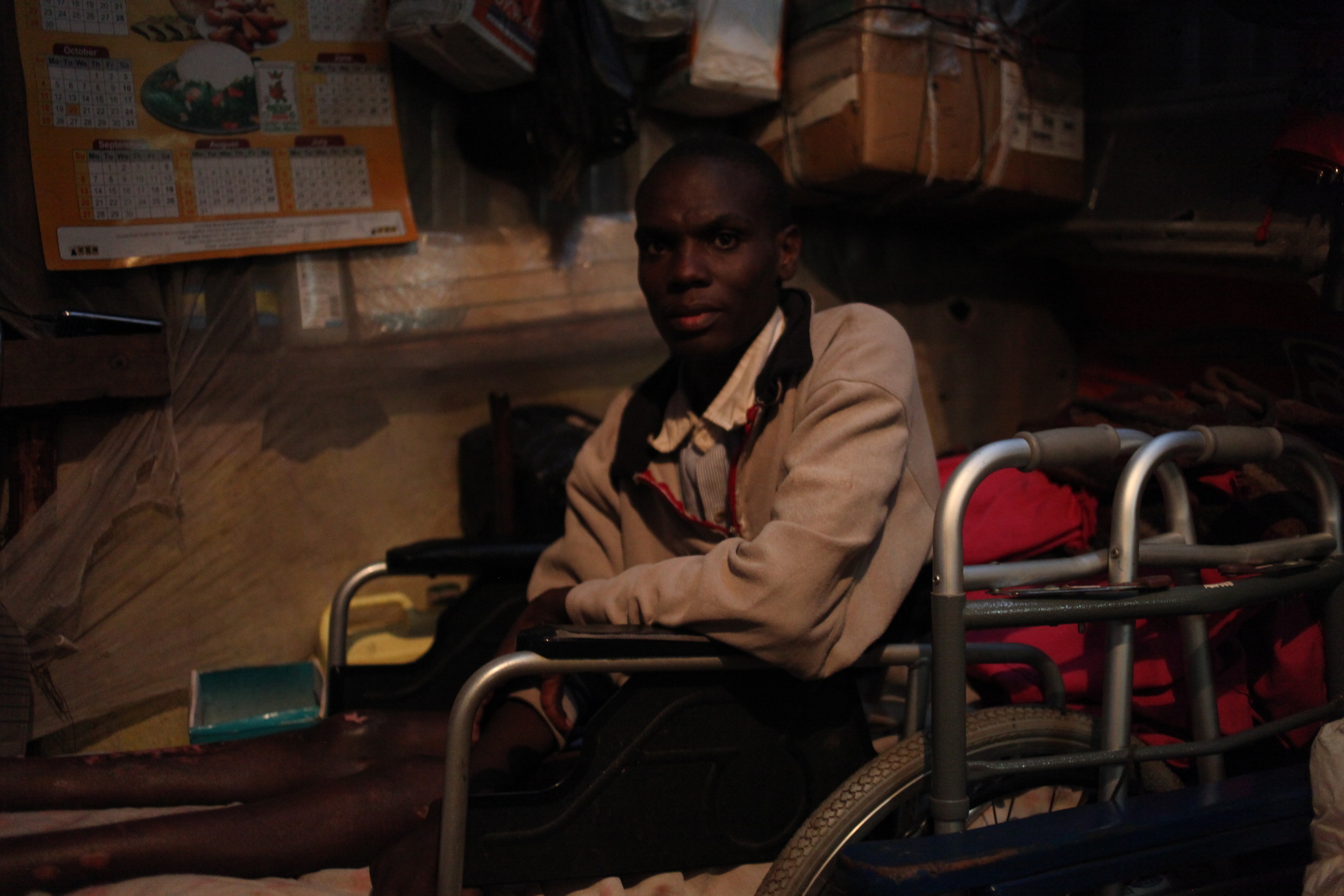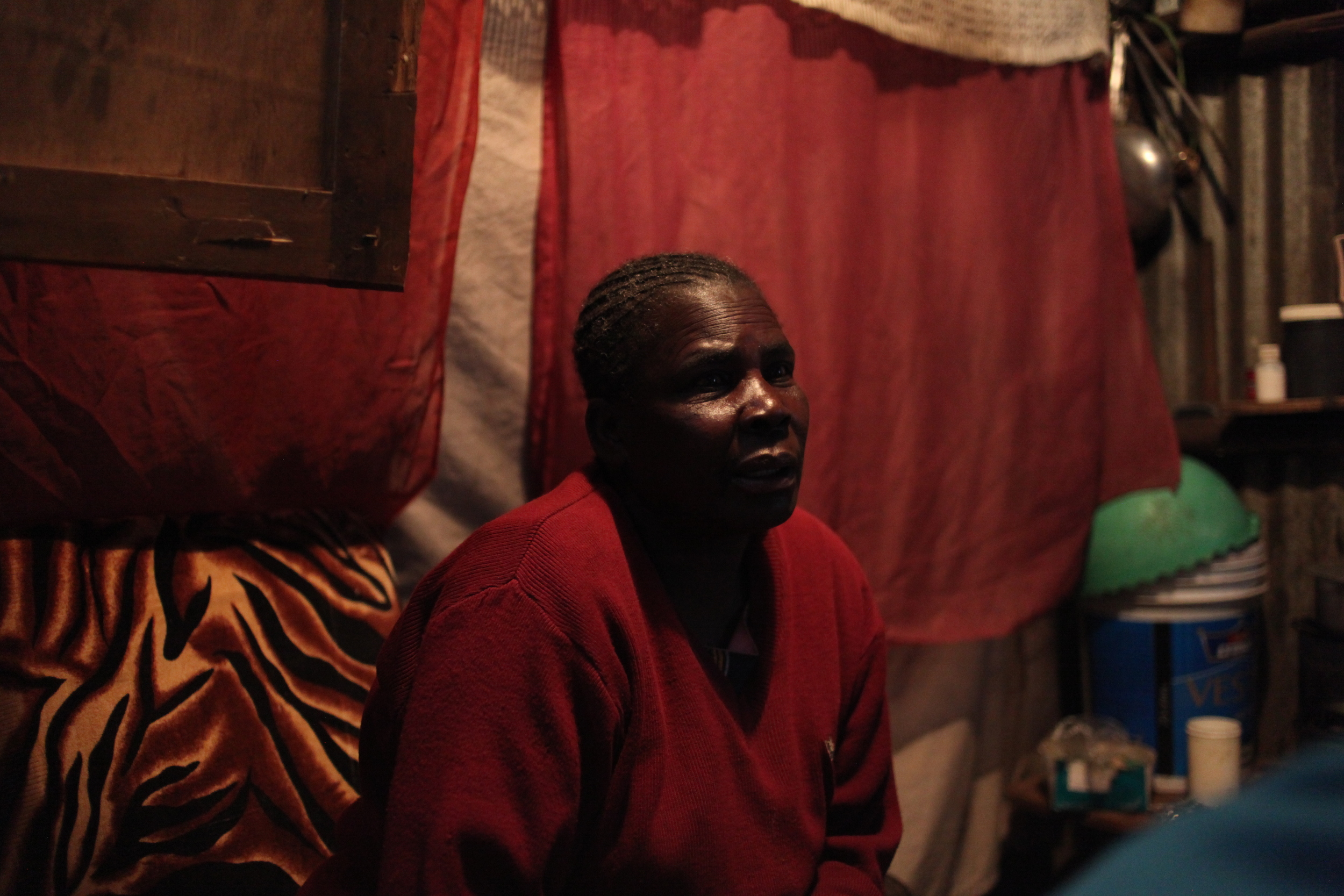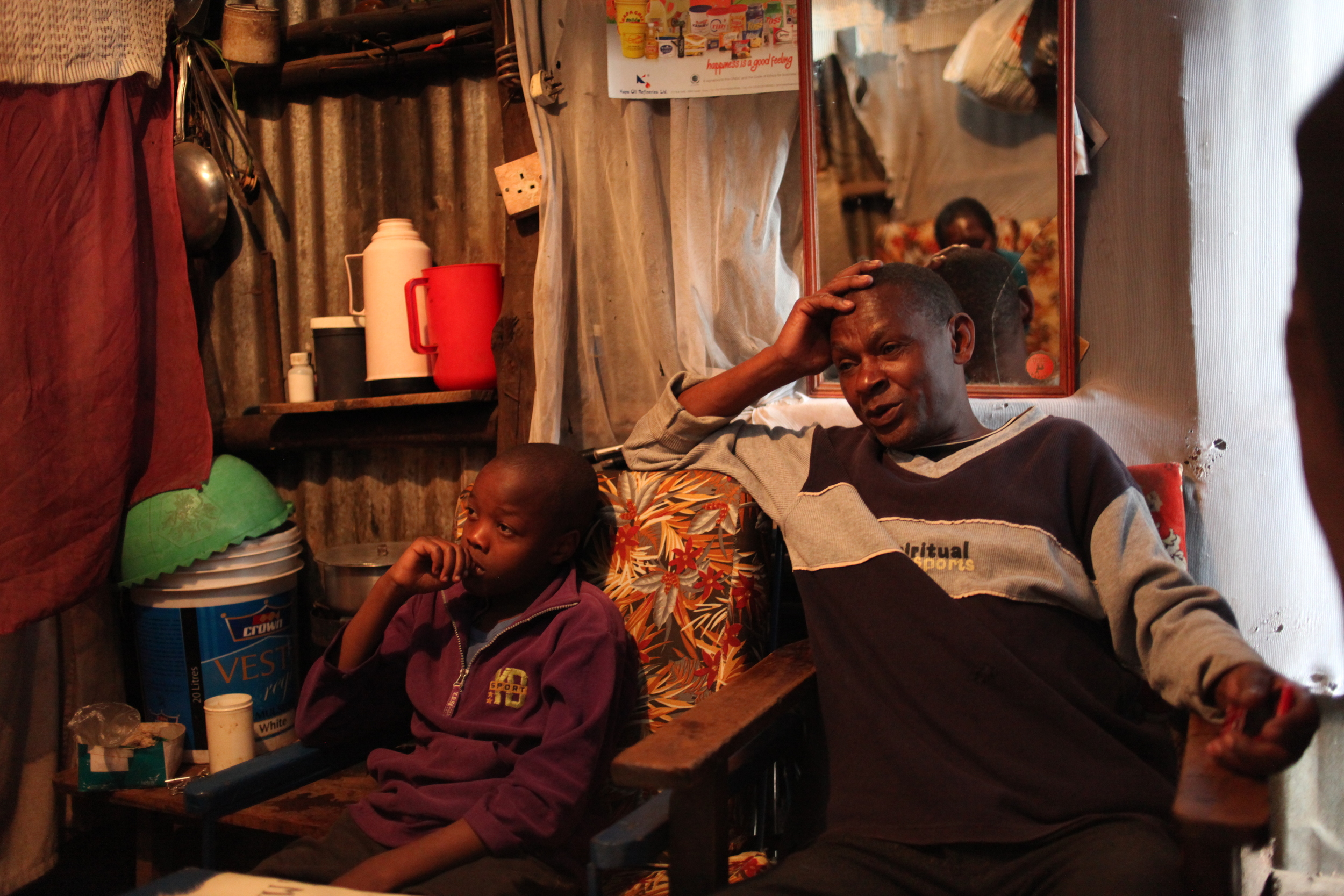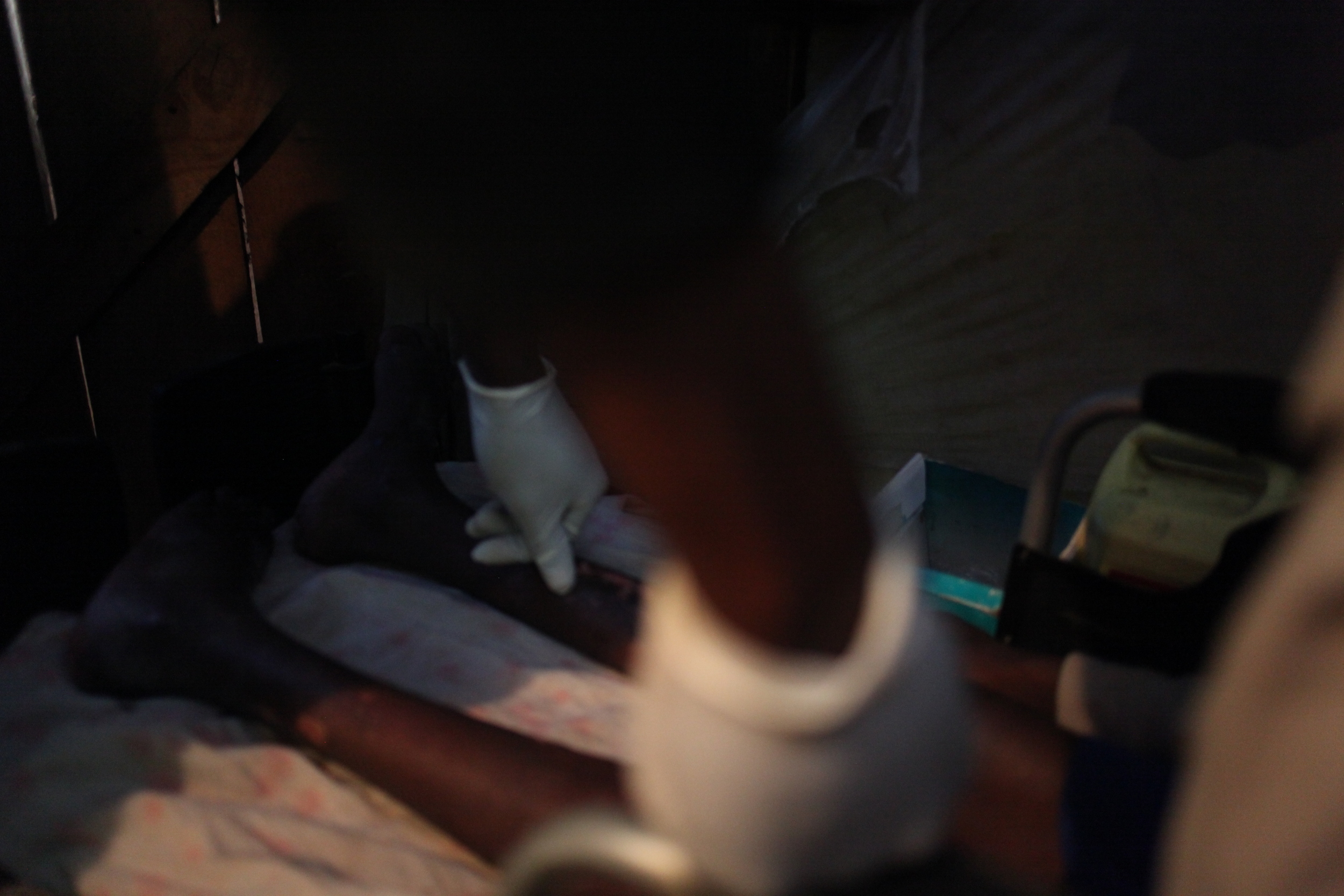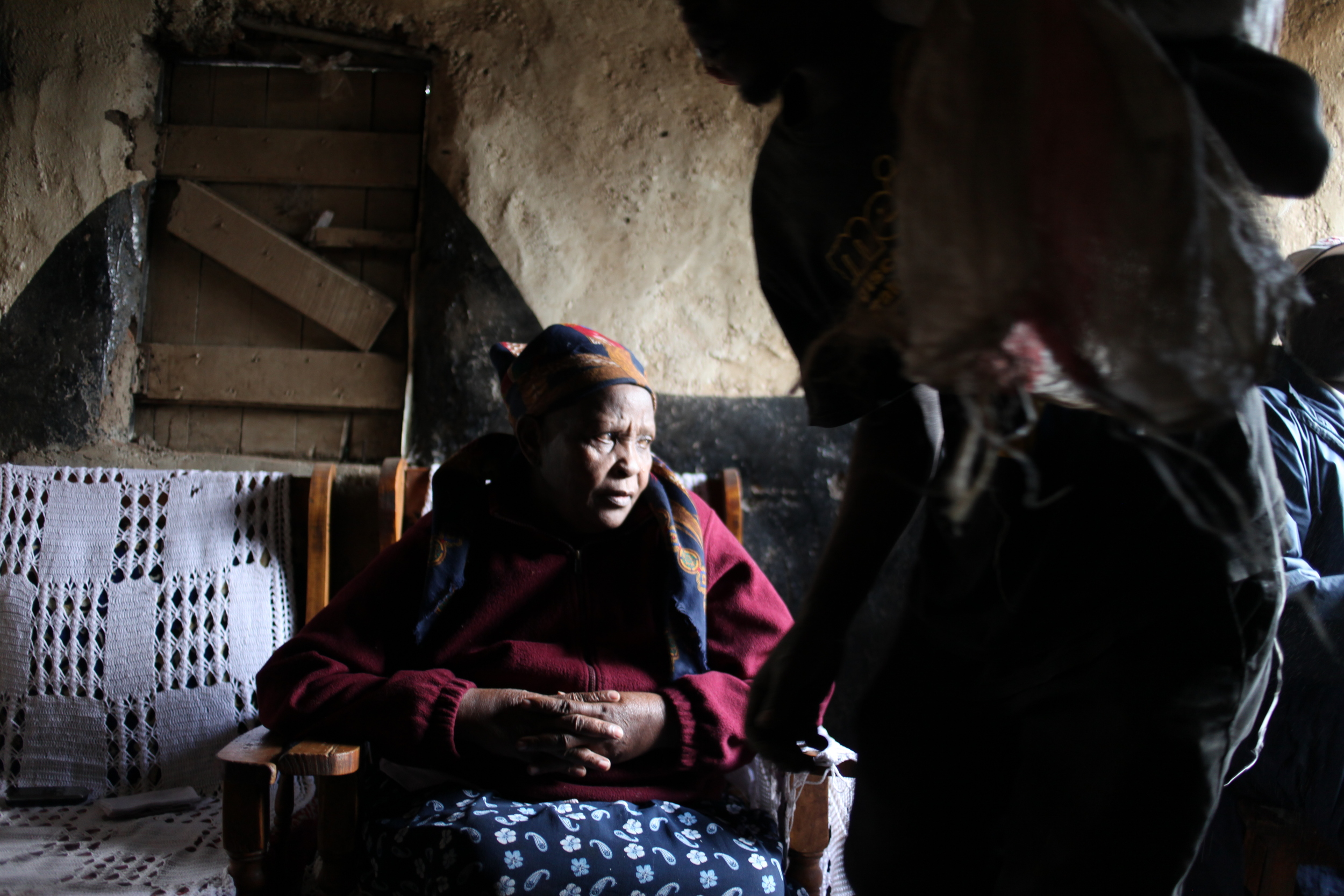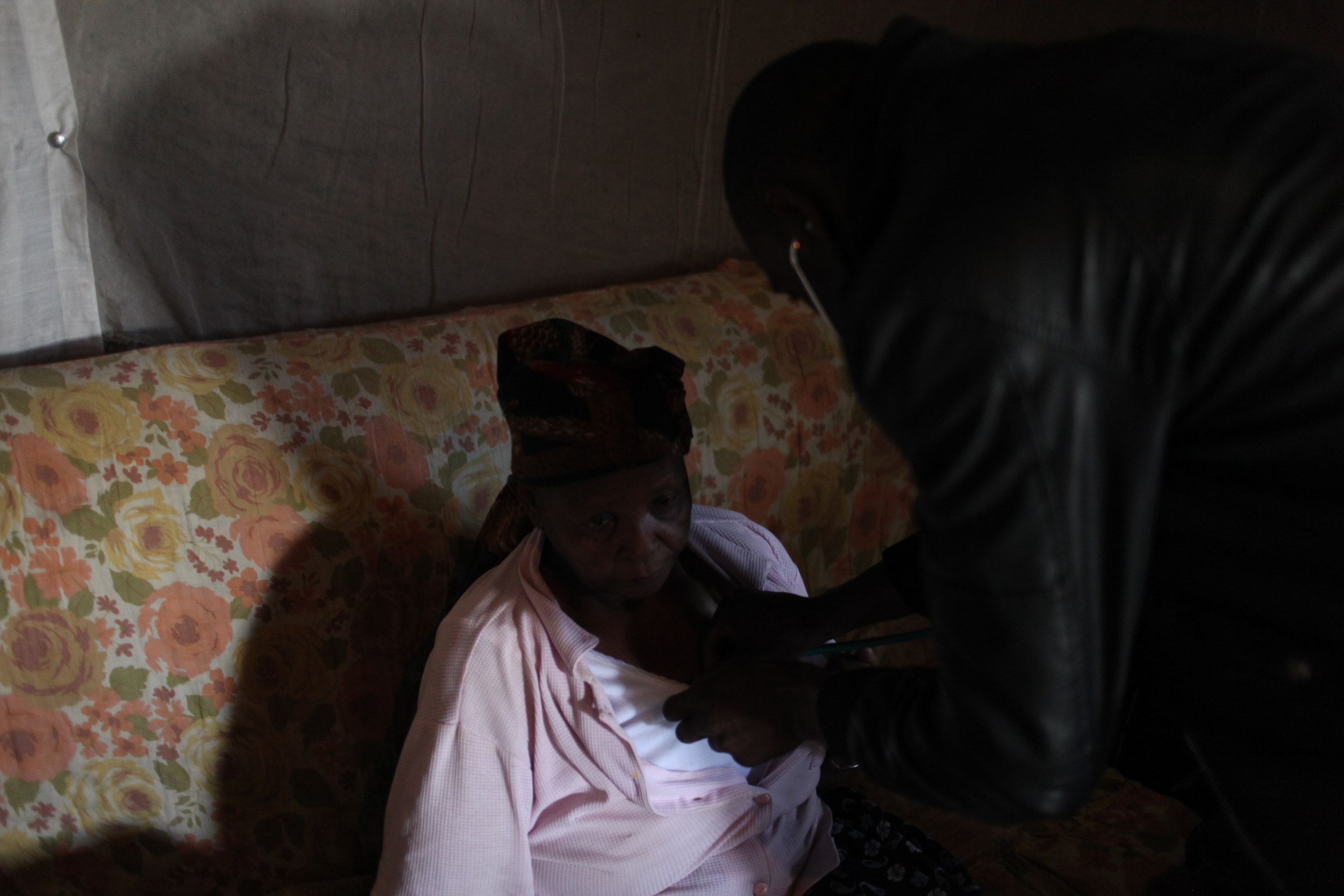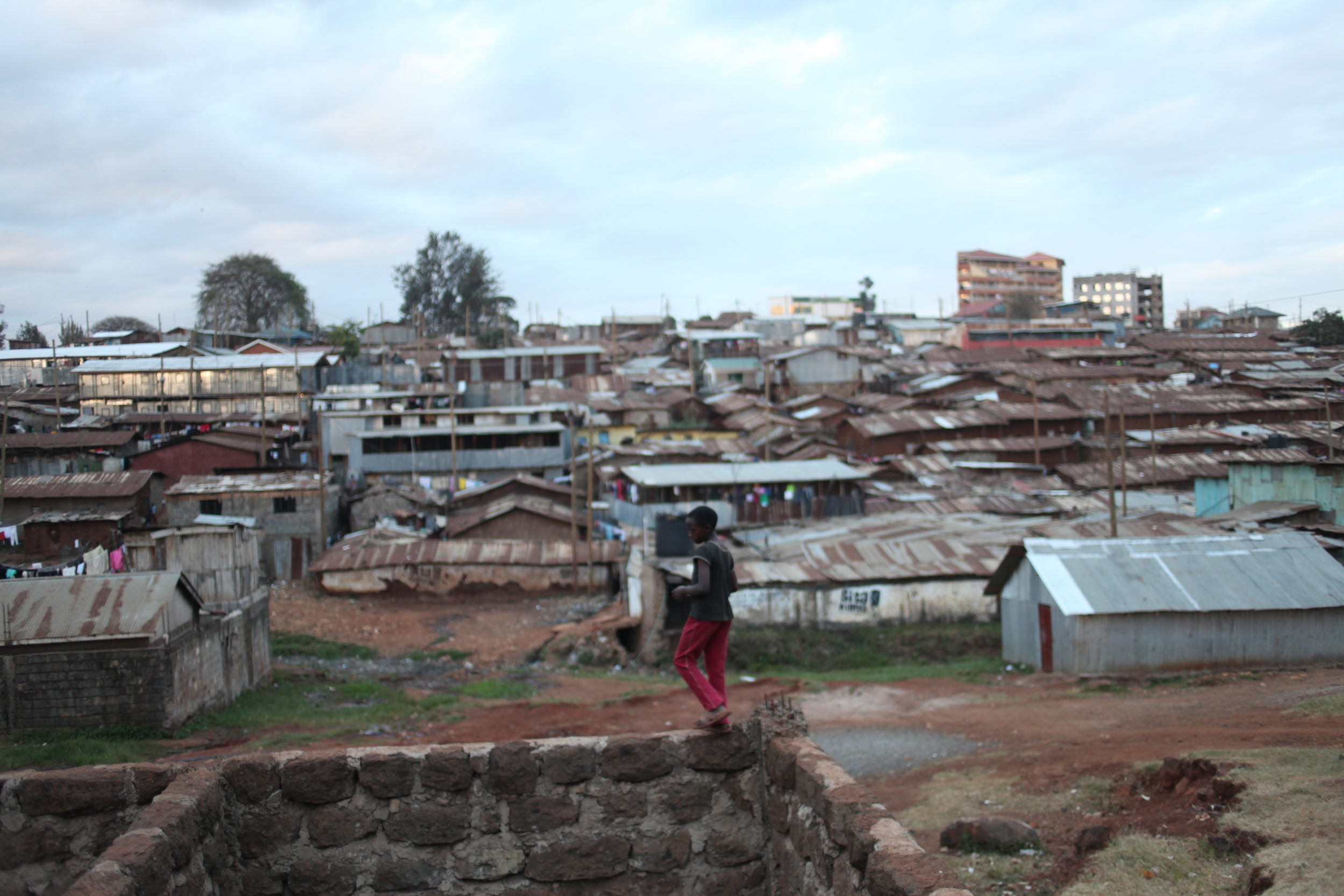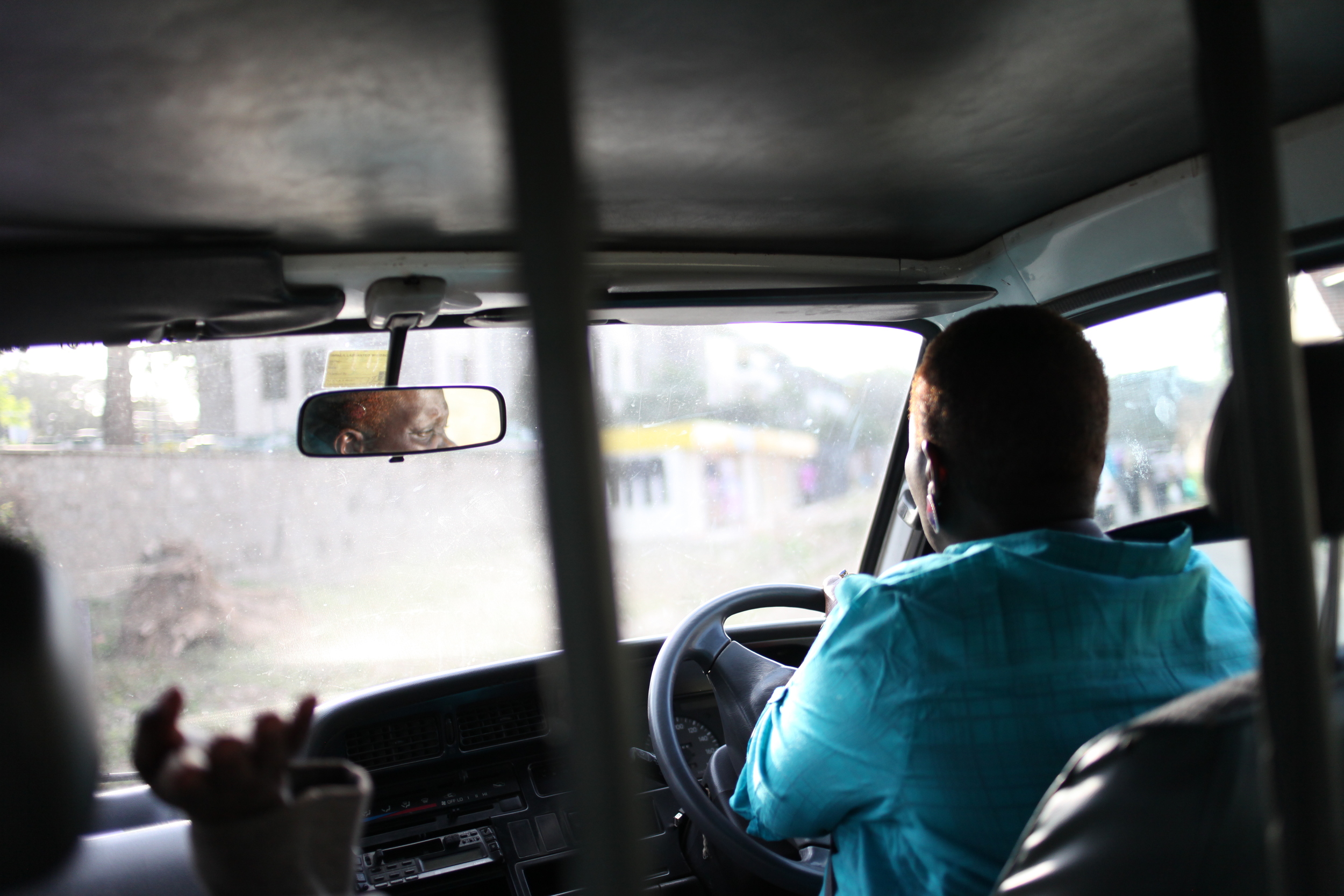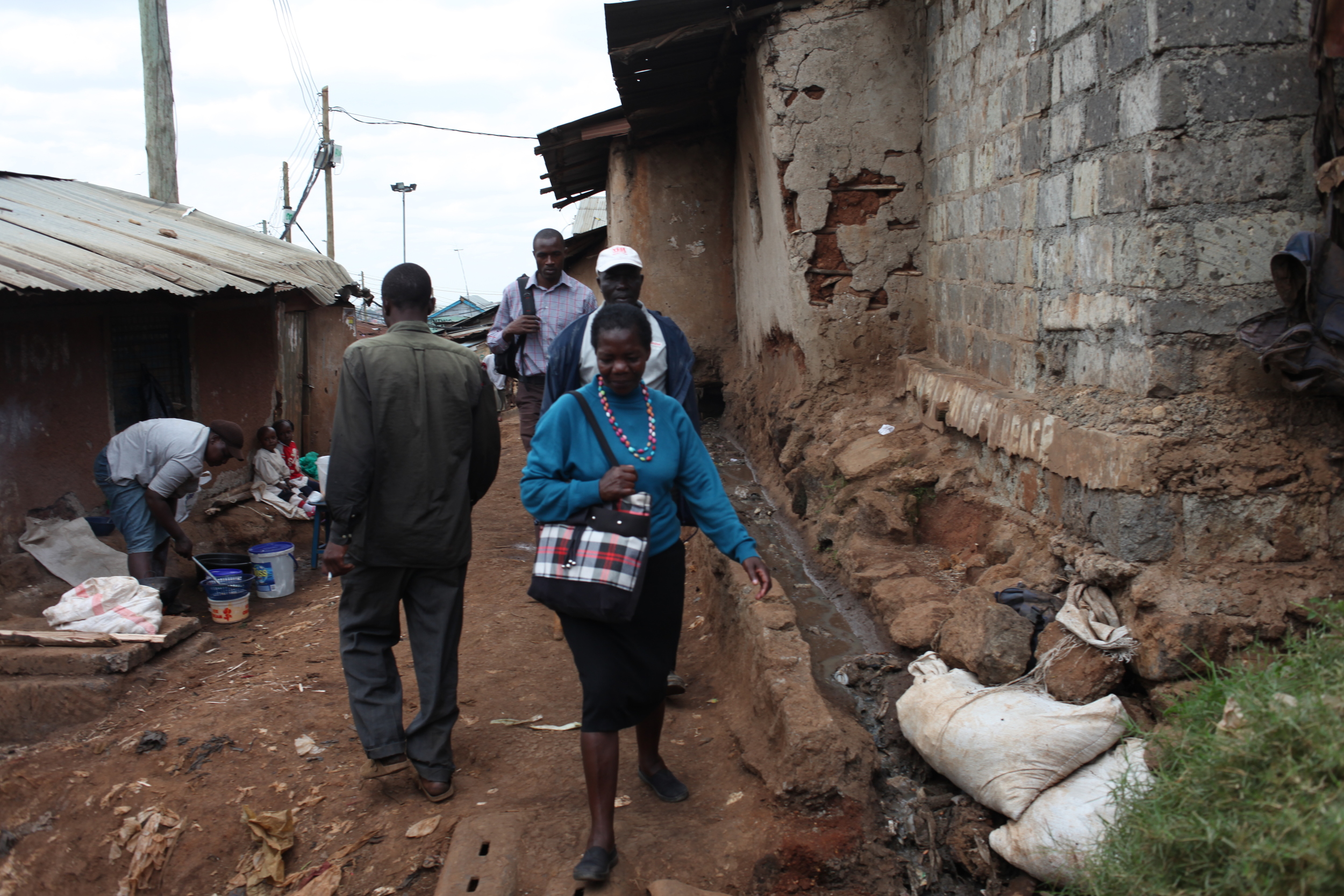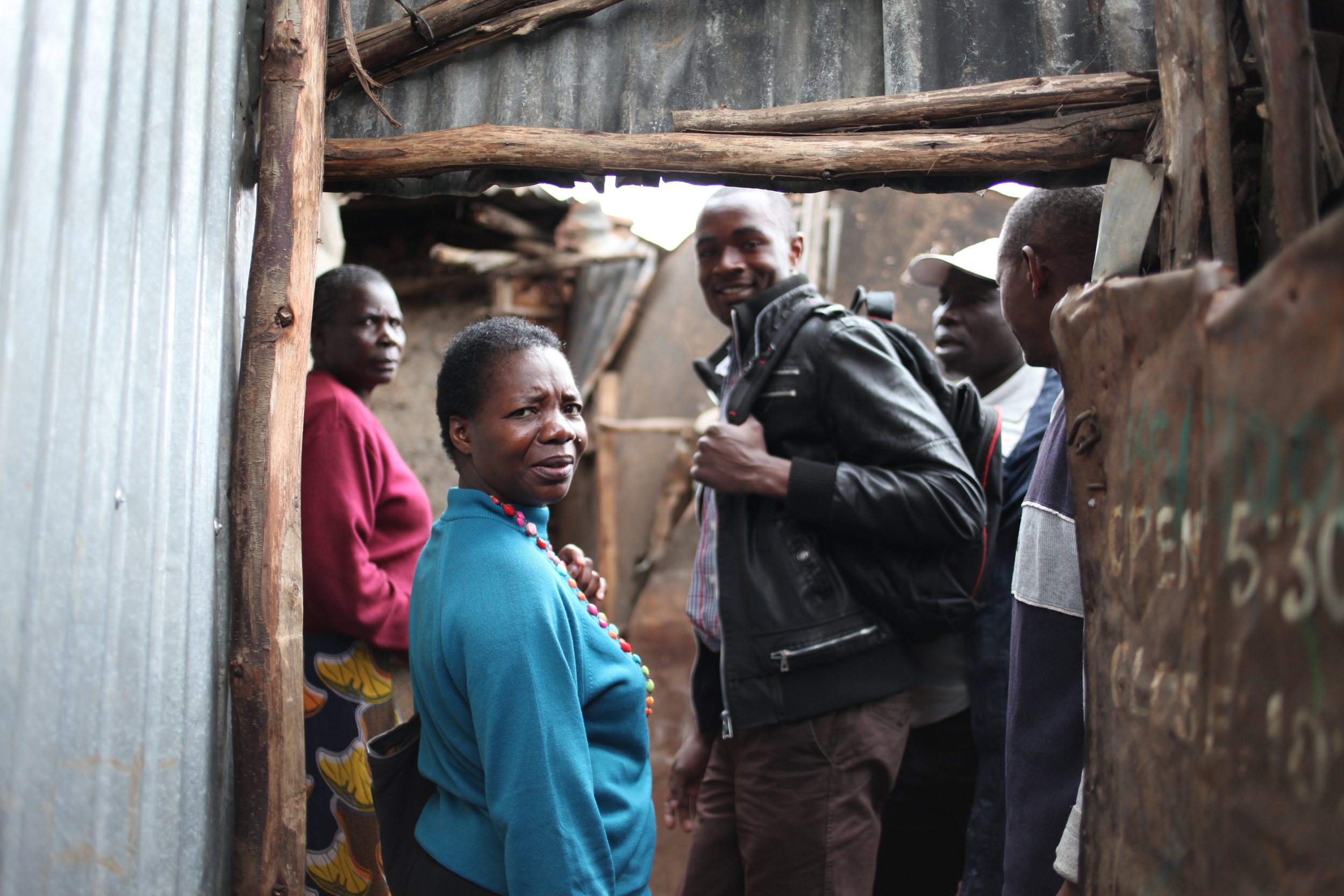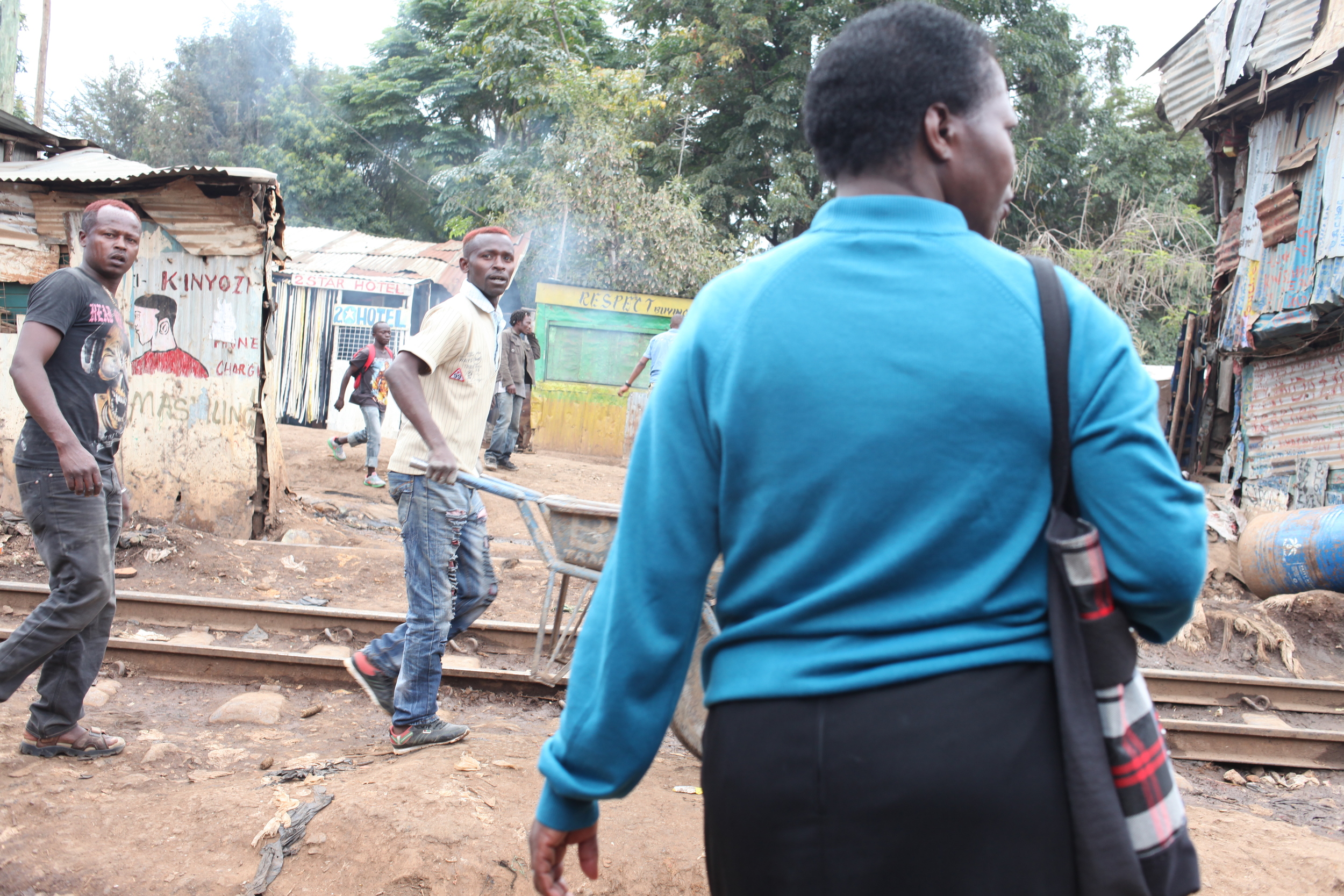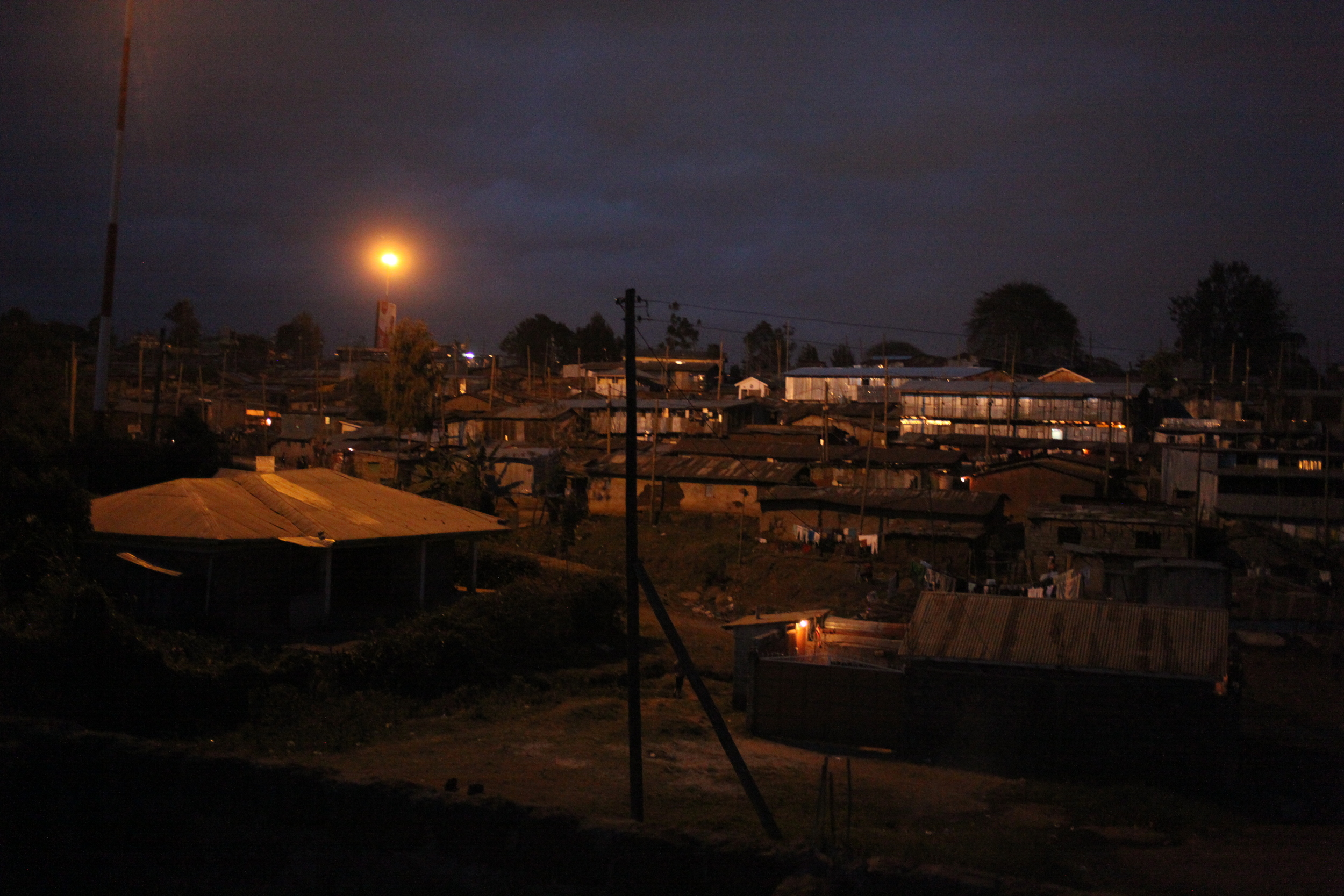KICOSHEP: To Heal a Community
by Menglan Chen
When Anne Owiti chose to stay with her family, she naturally ended up remaining in Kibera. In 1991, she had just finished graduate school in nursing and was facing a job transfer, which would have taken her to Nakuru, 200 miles away from her husband and her young children. “When I was working with the church, I was based in Kibera. I saw the problem. I wanted to run a clinic where I charge minimally so that everybody can come to me,” said Anne.
It did not take her long to discover the pattern: most of the women who came to her clinic and cried about their lives and pain were women who were “positive”. In Kibera, “positive” only modifies one thing: HIV/AIDS status. The women brought their bodies in pain to the clinic, but they mostly cried for their souls in pain. As Anne recalled, “The first lady who came here had no job and her mother didn't want to keep her anymore. She got a boyfriend and became pregnant, but the boyfriend didn't want to be responsible for the kid. I think women like her know the history of pain.”
Anne decided to extend the kind of support she could offer to her fellow women. In 1991, Anne founded Kibera Community Self-Help Programme, aimed at empowering women and children affected by HIV/AIDS in the community, although it is a resource for all who are sick or injured.
In the past twenty-five years, KICOSHEP has brought the idea of Home-Based Care into the community. “People cannot understand other people’s pain,” said Anne, “until they are taught to understand other people’s pain.” KICOSHEP mainly offers trainings in the community, as well as to companies operating in Kibera and beyond. It also operates a school in Kibera open to all, and guarantees a daily to monthly visit to 150 registered patients by community health volunteers through the community structure, which mainly provides palliative care.
As Anne points out, “In Kenya, we thought hospice was palliative care, but they are actually not the same thing. Hospice was a guesthouse. Palliative care is home-based care. We manage your pain in your own home, and we educate the family to understand your pain. The people who are touching you when you are sick are your own people, not strangers, not people who were paid money to look after you. It is demoralizing when someone dying is taken from the family. Even if I am dying, if I can die in my own bed at home, I will be so happy.”
Every Tuesday is KICOSHEP’s field day. As the coordinator of KICOSHEP’s home based care programs, Sophie Donde joins the community health volunteers for their daily visit around Kibera. When called for, she will also bring KICOSHEP’s clinical officer, Dr. Eli Ondiaka, who joined the organization in 2015, with her. Today, they are following Clemencia, one of the 250 community health volunteers managed by KICOSHEP. Each community health worker receives a 2,000 KES ($20.00) monthly stipend from KICOSHEP and is expected to spend two hours every day visiting patients. They are responsible for 20 patients and are expected to visit all of them at least once every month. On this Tuesday, the team is visiting three patients.
Every family can tell a long story by simply counting who is left in the house.
Augustine lives in a shanty in Silanga village of Kibera. Before they begin, Sophie, Eli, Clemencia, and Augustine’s father pray for his healing. Augustine lost his ability to control his lower limbs as well as his bladder after an accident in 2008. Due to lack of nutrition and his inability to move, Augustine’s lower limbs atrophied. While he was getting surgery and treatment as an inpatient in Kenyatta National Hospital, his wife died. It was not until 2013, when he was diagnosed with HIV, that he realized what she had. “I looked in his mouth and you could see some oral thrush, it’s a sign of HIV,” explained Dr. Eli. “He looks like a child to me. When I entered the house, he seemed in his 20's. I was surprised that he is 36 and has two kids.”
Sophie demonstrates the “pain process” with her hands to Augustine’s father, and Augustine indicates that his pain on the legs has reached the middle finger, which puts him on a painkiller called DS118 at 700KES per week. “But those drugs are very, very expensive,” said Sophie, “and when we go back to the patients with the drugs, they cannot afford them.”
The burden of looking after Augustine and supporting the entire family has fallen to Augustine’s father, who is retired and looks for temporary work every day. Augustine’s last born has been nominated as a candidate for secondary school, but whether he will attend is not an issue of honor or competition; it is purely an issue of money.
The second visit is with Dorothy Akello and her father David Omollo Otieno. They are both epileptics, the only two in their family. Dorothy runs a small business selling bracelets and necklaces made of plastic beads. The money they earn from this business allows them to buy medication to manage their epilepsy. On the day of the visit, Dorothy’s father was undergoing a convulsion in the dark corner of the bed.
Wanjiku was the third patient Dr. Eli and Sophie visited. She is seventy years old and has had tuberculosis twice in her life, living for many years without her right lung. After the examination, Dr. Eli told Sophie, “If she has coughed more than three weeks, she will be recommended for a TB test again. There is a possibility that TB could recur.” Besides TB, Wanjiku also has diabetes and hypertension, for which she has been taking long-term medication.
Wanjiku lives with four of her grandchildren whose parents are either not living in Kibera or passed away. Wanjiku has been widowed for a long time and has no source of income to support her grandchildren and must rely on the help of others and small, odd jobs.
Being a doctor has been Eli’s dream since he was a child. “I see the people. They need doctors. I feel good.” When Dr. Eli was still a student, his university used to take him to Kiandutu, a slum in Thika for community investigation and report writing. For him, Kibera is not that different from Kiandutu, but “Kibera is huge.” He paused, and added, “Kibera is huge.” For his future, Eli sees two choices. He would either prefer a job in the public medical system, or go on to study pediatrics. As the second child of seven in his family, Eli said, “going back to school is a bit challenging. I have to work first. When I get money, I support myself for higher education. Yes. The only challenge now is money.”
Money is the challenge for everyone. According to Dr. Eli, government hospitals offer free or affordable medications such as ARVs and morphine, but those only come after a long line, which means an extended period of pain without care or control. Immediate treatment, on the other hand, costs money. Even though KICOSHEP can obtain medications from companies cooperating with the government for a discount, it cannot afford to offer medications to the patients for free. In the end, the choices come back to those who are in pain: to treat their own pain or to feed their families and put their children in school. To choose both is often not an option.
Anne, Sophie, and Dr. Eli know that it will be a long way to go. They are working in an imperfect system, which makes it hard to heal individual patients, and even harder to heal the persistant pain of the community. Nevertheless, as long as someone along the winding trails of Kibera is waiting for them, they will keep walking.

